Visit to get our entire library of TED Talks, transcripts, translations, personalized talk recommendations and more.
Why are humans so slow to react to looming crises, like a forewarned pandemic or a warming planet? It’s because we’re reluctant to rethink, say organizational psychologist Adam Grant. From a near-disastrous hike on Panama’s highest mountain to courageously joining his high school’s diving team, Grant borrows examples from his own life to illustrate how tunnel vision around our goals, habits and identities can find us stuck on a narrow path. Drawing on his research, he shares counterintuitive insights on how to broaden your focus and remain open to opportunities for rethinking. (If you think you know something about frogs, watch until the end and get ready to think again.)
The TED Talks channel features the best talks and performances from the TED Conference, where the world’s leading thinkers and doers give the talk of their lives in 18 minutes (or less). Look for talks on Technology, Entertainment and Design — plus science, business, global issues, the arts and more. You’re welcome to link to or embed these videos, forward them to others and share these ideas with people you know.
Become a TED Member:
Follow TED on Twitter:
Like TED on Facebook:
Subscribe to our channel:
TED’s videos may be used for non-commercial purposes under a Creative Commons License, Attribution–Non Commercial–No Derivatives (or the CC BY – NC – ND 4.0 International) and in accordance with our TED Talks Usage Policy (). For more information on using TED for commercial purposes (e.g. employee learning, in a film or online course), please submit a Media Request at
Transcriber:
You might have heard that if you drop
a frog in a pot of boiling water,
it will jump out right away,
but if you put it in lukewarm water,
and then slowly heat it up,
the frog won’t survive.
The frog’s big problem is that it lacks
the ability to rethink the situation.
It doesn’t realize that the warm bath
is becoming a death trap —
until it’s too late.
Humans might be smarter than frogs,
but our world is full
of slow-boiling pots.
Think about how slow people were
to react to warnings about a pandemic,
climate change or a democracy in peril.
We fail to recognize the danger
because we’re reluctant
to rethink the situation.
We struggle with rethinking
in all kinds of situations.
We expect our squeaky brakes
to keep working,
until they finally fail on the freeway.
We believe the stock market
will keep going up,
even after we hear
about a real-estate bubble.
And we keep watching “Game of Thrones”
even after the show jumps the shark.
Rethinking isn’t a hurdle
in every part of our lives.
We’re happy to refresh our wardrobes
and renovate our kitchens.
But when it comes to our goals,
identities and habits,
we tend to stick to our guns.
And in a rapidly changing world,
that’s a huge problem.
I’m an organizational psychologist.
It’s my job to rethink
how we work, lead and live.
But that hasn’t stopped me
from getting stuck in slow-boiling pots,
so I started studying why.
I learned that intelligence
doesn’t help us escape;
sometimes, it traps us longer.
Being good at thinking
can make you worse at rethinking.
There’s evidence that the smarter you are,
the more likely you are to fall victim
to the “I’m not biased” bias.
You can always find reasons
to convince yourself
you’re on the right path,
which is exactly what my friends and I
did on a trip to Panama.
I worked my way through college,
and by my junior year,
I’d finally saved enough money to travel.
It was my first time
leaving North America.
I was excited for my first time
climbing a mountain,
actually an active volcano,
literally a slow-boiling pot.
I set a goal to reach the summit
and look into the crater.
So, we’re in Panama,
we get off to a late start,
but it’s only supposed to take
about two hours to get to the top.
After four hours,
we still haven’t reached the top.
It’s a little strange
that it’s taking so long,
but we don’t stop to rethink
whether we should turn around.
We’ve already come so far.
We have to make it to the top.
Do not stand between me and my goal.
We don’t realize we’ve read the wrong map.
We’re on Panama’s highest mountain,
it actually takes six to eight hours
to hike to the top.
By the time we finally reach the summit,
the sun is setting.
We’re stranded, with no food,
no water, no cell phones,
and no energy for the hike down.
There’s a name for this kind of mistake,
it’s called “escalation of commitment
to a losing course of action.”
It happens when you make
an initial investment of time or money,
and then you find out
it might have been a bad choice,
but instead of rethinking it,
you double down and invest more.
You want to prove to yourself
and everyone else
that you made a good decision.
Escalation of commitment
explains so many familiar examples
of businesses plummeting.
Blockbuster, BlackBerry, Kodak.
Leaders just kept simmering
in their slow-boiling pots,
failing to rethink their strategies.
Escalation of commitment
explains why you might have stuck around
too long in a miserable job,
why you’ve probably waited for a table
way too long at a restaurant
and why you might have hung on
to a bad relationship
long after your friends
encouraged you to leave.
It’s hard to admit that we were wrong
and that we might have even
wasted years of our lives.
So we tell ourselves,
“If I just try harder,
I can turn this around.”
We live in a culture that worships
at the altar of hustle
and prays to the high priest of grit.
But sometimes, that leads us to keep going
when we should stop to think again.
Experiments show that gritty people
are more likely to overplay
their hands in casino games
and more likely to keep trying
to solve impossible puzzles.
My colleagues and I have found
that NBA basketball coaches
who are determined to develop
the potential in rookies
keep them around much longer
than their performance justifies.
And researchers have even suggested
that the most tenacious mountaineers
are more likely to die on expeditions,
because they’re determined to do
whatever it takes to reach the summit.
In Panama, my friends and I got lucky.
About an hour into our descent,
a lone pickup truck came down the volcano
and rescued us from our slow-boiling pot.
There’s a fine line between heroic
persistence and stubborn stupidity.
Sometimes the best kind of grit
is gritting your teeth
and packing your bags.
“Never give up” doesn’t mean “keep doing
the thing that’s failing.”
It means “don’t get locked
into one narrow path,
and stay open to broadening your goals.
The ultimate goal
is to make it down the mountain,
not just to reach the top.
Your goals can give you tunnel vision,
blinding you to rethinking the situation.
And it’s not just goals that can cause
this kind of shortsightedness,
it’s your identity too.
As a kid, my identity
was wrapped up in sports.
I spent countless hours
shooting hoops on my driveway,
and then I got cut from the middle school
basketball team, all three years.
I spent a decade playing soccer,
but I didn’t make the high school team.
At that point, I shifted my focus
to a new sport, diving.
I was bad,
I walked like Frankenstein,
I couldn’t jump,
I could hardly touch my toes
without bending my knees,
and I was afraid of heights.
But I was determined.
I stayed at the pool until it was dark,
and my coach kicked me
out of practice. (Laughs)
I knew that the seeds of greatness
are planted in the daily grind,
and eventually, my hard work paid off.
By my senior year,
I made the All-American list,
and I qualified
for the Junior Olympic Nationals.
I was obsessed with diving.
It was more than something I did,
it became who I was.
I had a diving sticker on my car,
and my email address
was “diverag at aol.com.”
Diving gave me a way to fit in
and to stand out.
I had a team where I belonged
and a rare skill to share.
I had people rooting for me
and control over my own progress.
But when I got to college,
the sport that I loved
became something I started to dread.
At that level,
I could not beat more talented divers
by outworking them.
I was supposed to be doing higher dives,
but I was still afraid of heights,
and 6am practice was brutal.
My mind was awake,
but my muscles were still asleep.
I did back smacks and belly flops
and my slow-boiling pot this time
was a freezing pool.
There was one question, though,
that stopped me from rethinking.
“If I’m not a diver, who am I?”
In psychology, there’s a term
for this kind of failure to rethink —
it’s called “identity foreclosure.”
It’s when you settle prematurely
on a sense of who you are
and close your mind to alternative selves.
You’ve probably experienced
identity foreclosure.
Maybe you were too attached
to an early idea
of what school you’d go to,
what kind of person you’d marry,
or what career you’d choose.
Foreclosing on one identity
is like following a GPS
that gives you the right directions
to the wrong destination.
After my freshman year of college,
I rethought my identity.
I realized that diving was a passion,
not a purpose.
My values were to grow and excel,
and to contribute to helping
my teammates grow and excel.
Grow, excel, contribute.
I didn’t have to be a diver
to grow, excel and contribute.
Research suggests that instead
of foreclosing on one identity,
we’re better off trying on a range
of possible selves.
Retiring from diving
freed me up to spend the summer
doing psychology research
and working as a diving coach.
It also gave me time to concentrate
on my dorkiest hobby,
performing as a magician.
I’m still working on my sleight of hand.
Opening my mind to new identities
opened new doors.
Research showed me that I enjoyed
creating knowledge,
not just consuming it.
Coaching and performing
helped me see myself as a teacher
and an entertainer.
If that hadn’t happened,
I might not have become
a psychologist and a professor,
and I probably wouldn’t be
giving this TED talk.
See, I’m an introvert,
and when I first started teaching,
I was afraid of public speaking.
I had a mentor, Jane Dutton,
who gave me some invaluable advice.
She said, “You have to unleash
your inner magician.”
So I turned my class into a live show.
Before the first day, I memorized
my students’ names and backgrounds,
and then, I mastered my routine.
Those habits served me well.
I started to relax more
and I started to get good ratings.
But just like with goals and identities,
the routines that help us today
can become the ruts
we get trapped in tomorrow.
One day, I taught a class
on the importance of rethinking,
and afterward, a student came up and said,
“You know, you’re not following
your own principles.”
They say feedback is a gift,
but right then, I wondered,
“How do I return this?”
(Takes a breath)
I was teaching the same material,
the same way, year after year.
I didn’t want to give up
on a performance that was working.
I had my act down.
Even good habits can stand
in the way of rethinking.
There’s a name for that too.
It’s called “cognitive entrenchment,”
where you get stuck in the way
you’ve always done things.
Just thinking about rethinking
made me defensive.
And then, I went
through the stages of grief.
I happened to be doing some research
on emotion regulation at the time,
and it came in handy.
Although you don’t always get to choose
the emotions you feel,
you do get to pick
which ones you internalize
and which ones you express.
I started to see emotions
as works in progress,
kind of like art.
If you were a painter,
you probably wouldn’t frame
your first sketch.
Your initial feelings
are just a rough draft.
As you gain perspective,
you can rethink and revise what you feel.
So that’s what I did.
Instead of defensiveness,
I tried curiosity.
I wondered, “What would happen
if I became the student?”
I threw out my plan for one day of class,
and I invited the students
to design their own session.
The first year, they wrote letters
to their freshman selves,
about what they wish
they’d rethought or known sooner.
The next year, they gave passion talks.
They each had one minute to share
something they loved
or cared about deeply.
And now, all my students
give passion talks
to introduce themselves to the class.
I believe that good teachers
introduce new thoughts
but great teachers introduce
new ways of thinking.
But it wasn’t until I ceded control
that I truly understood
how much my students had
to teach one another,
and me.
Ever since then,
I put an annual reminder in my calendar
to rethink what and how I teach.
It’s a checkup.
Just when you go to the doctor
for an annual checkup
when nothing seems to be wrong,
you can do the same thing
in the important parts of your life.
A career checkup to consider
how your goals are shifting.
A relationship checkup
to re-examine your habits.
An identity checkup to consider
how your values are evolving.
Rethinking does not
have to change your mind —
it just means taking time to reflect
and staying open to reconsidering.
A hallmark of wisdom
is knowing when to grit and when to quit,
when to throw in the towel
on an old identity
and dive into a new one,
when to walk away from some old habits
and start scaling a new mountain.
Your past can weigh you down,
and rethinking can liberate you.
Rethinking is not just a skill
to master personally,
it’s a value we need
to embrace culturally.
We live in a world that mistakes
confidence for competence,
that pressures us to favor
the comfort of conviction
over the discomfort of doubt,
that accuses people who change
their minds of flip-flopping,
when in fact, they might be learning.
So let’s talk about how to make
rethinking the norm.
We need to invite it and to model it.
A few years ago,
some of our students at Wharton
challenged the faculty to do that.
They asked us to record
our own version
of Jimmy Kimmel’s Mean Tweets.
We took the worst feedback
we’d ever received
on student course evaluations,
and we read it out loud.
Angela Duckworth: “It was easily one of
the worst three classes I’ve ever taken…
one of which the professor
was let go after the semester.”
Mohamed El-Erian: “The number of
stories you tell
give ‘Aesop’s Fables’ a run for its money.
Less can be more.”
Ouch.
Adam Grant: “You’re so nervous
you’re causing us
to physically shake in our seats.”
(Laughs)
Mae McDonnell: “So great to finally have
a professor from Australia.
You started strong but then got softer.
You need tenure, so toughen up
with these brats.”
I’m from Alabama.
Michael Sinkinson: “Prof Sinkinson acts
all down with pop culture
but secretly thinks Ariana Grande
is a font in Microsoft Word.”
(Laughs)
AG: After I show these clips in class,
students give more thoughtful feedback.
They rethink what’s relevant.
They also become more comfortable
telling me what to think,
because I’m not just claiming
I’m receptive to criticism.
I’m demonstrating that I can take it.
We need that kind of openness in schools,
in families, in businesses,
in governments, in nonprofits.
A couple of years ago, I was working
on a project for the Gates Foundation,
and I suggested that leaders could record
their own version of Mean Tweets.
Melinda Gates volunteered to go first,
and one of the points
of feedback that she read
said “Melinda is like Mary effing Poppins.
Practically perfect in every way.”
And then, she started
listing her imperfections.
People at the Gates Foundation
who saw that video
ended up becoming more willing
to recognize and overcome
their own limitations.
They were also more likely to speak up
about problems and solutions.
What Melinda was modeling
was confident humility.
Confident humility is being
secure enough in your strengths
to acknowledge your weaknesses.
Believing that the best way
to prove yourself is to improve yourself,
knowing that weak leaders
silence their critics
and make themselves weaker,
while strong leaders engage their critics
and make themselves stronger.
Confident humility gives you
the courage to say “I don’t know,”
instead of pretending
to have all the answers.
To say “I was wrong,”
instead of insisting you were right.
It encourages you to listen to ideas
that make you think hard,
not just the ones that make you feel good,
and to surround yourself with people
who challenge your thought process,
not just the ones who agree
with your conclusions.
And sometimes, it even leads you
to challenge your own conclusions,
like with the story about the frog
that can’t survive the slow-boiling pot.
I found out recently that’s a myth.
If you heat up the water,
the frog will jump out
as soon as it gets uncomfortably warm.
Of course it jumps out, it’s not an idiot.
The problem is not the frog, it’s us.
Once we accept the story as true,
we don’t bother to think again.
What if we were more like the frog,
ready to jump out
if the water gets too warm?
We need to be quick to rethink.
Thank you.

 Science & Technology5 years ago
Science & Technology5 years ago
 CNET5 years ago
CNET5 years ago
 People & Blogs3 years ago
People & Blogs3 years ago
 Wired6 years ago
Wired6 years ago
 Wired6 years ago
Wired6 years ago
 Wired6 years ago
Wired6 years ago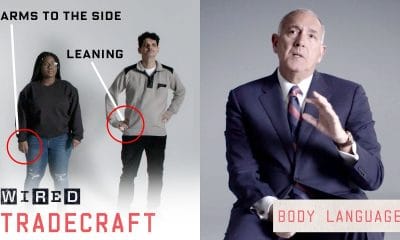
 Wired6 years ago
Wired6 years ago
 CNET5 years ago
CNET5 years ago



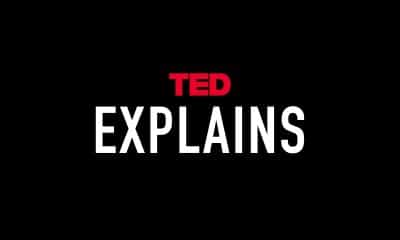



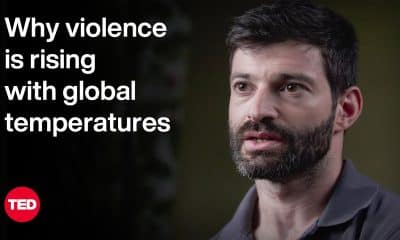



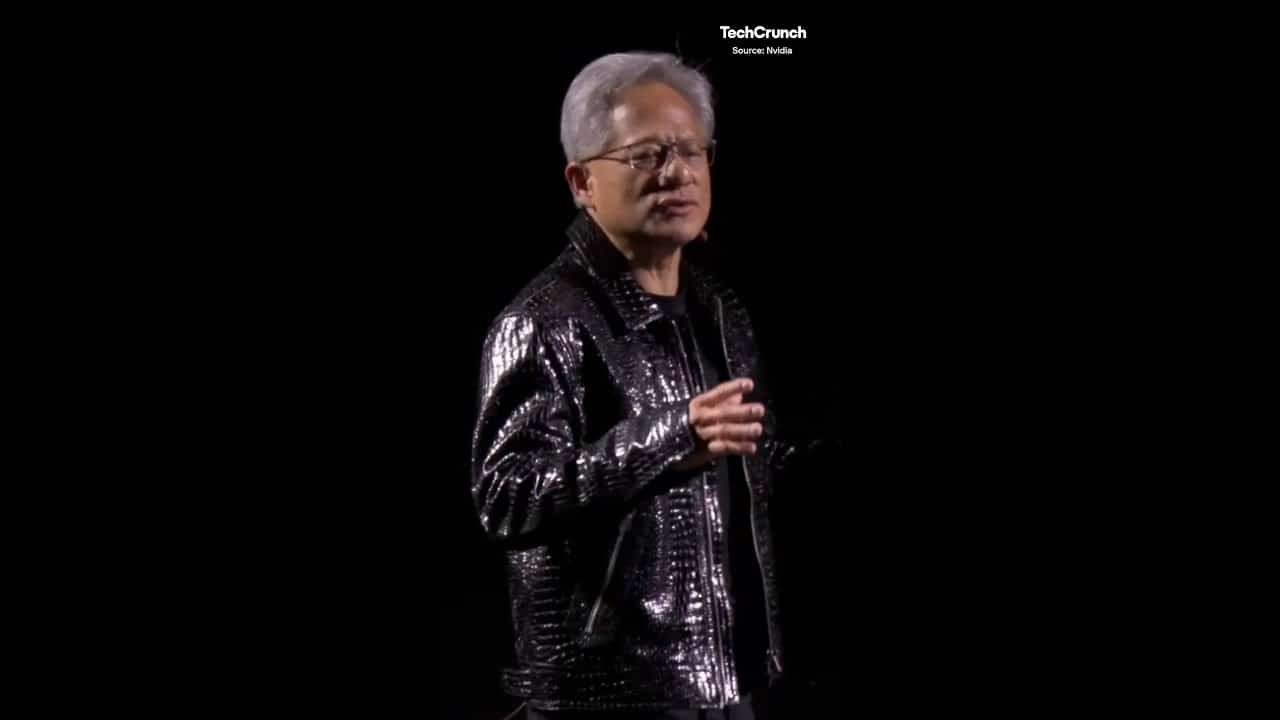
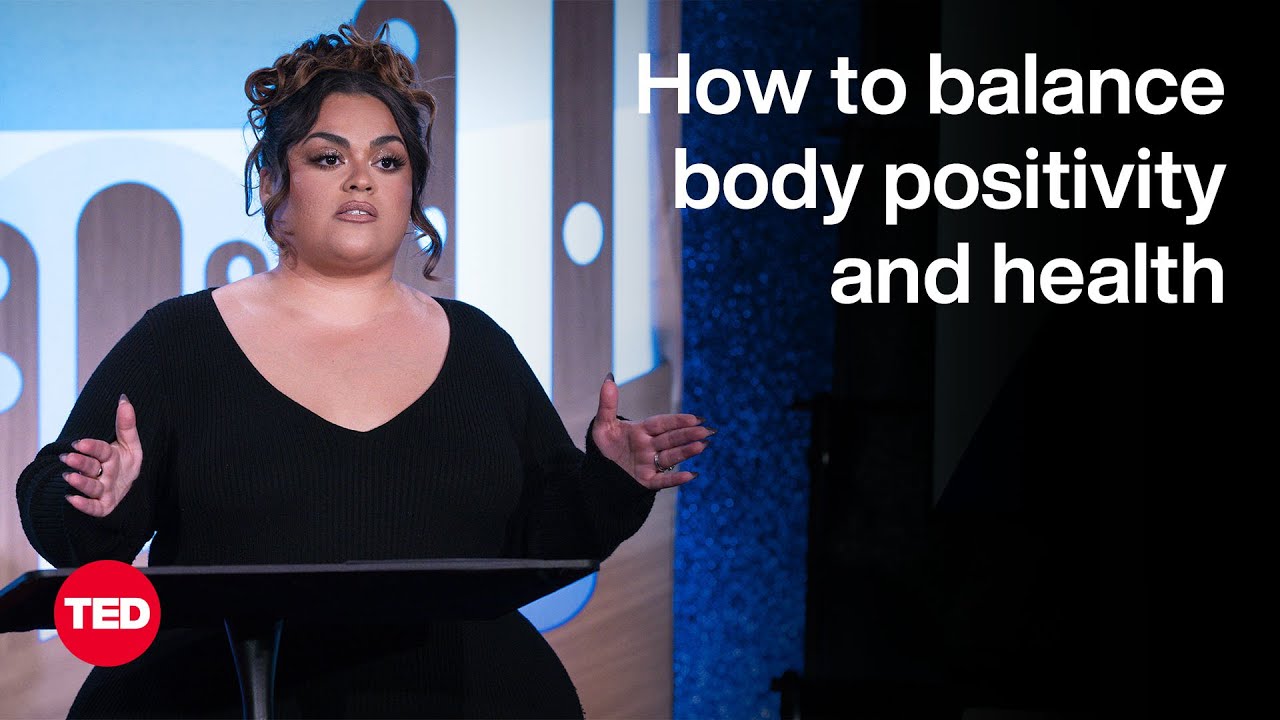




420
May 11, 2021 at 5:15 pm
Blah blah blah boring lol 🤣
Charlotte Petrie
May 11, 2021 at 5:15 pm
If anyone wants stickers personal message! I’m down! Email or whatever love you you’re alive
Zenn Exile
May 11, 2021 at 5:32 pm
Nothing, because the frogs in hot water load of nonsense is completely debunked. Why does no one do any research anymore?
Adam Grant
May 11, 2021 at 6:37 pm
Try watching until the end
Castan F.
May 11, 2021 at 6:36 pm
They’re putting chemicals in the water.
Brian Sambs
May 11, 2021 at 6:37 pm
Very thought provoking. In this world of reactionary grift. Thank you for giving permission to course correction & honest self reflection.
Marquita Renee
May 11, 2021 at 7:08 pm
Hello, I just watched a video by TED named this. “What if 3D printing was 100x faster? | Joseph DeSimone” *btw im on my moms account* So maybe you guys can do my idea, which my idea is that instead of having the print-out be on a platform with water and having light dry the water to do the print-out, you can use clay and put it in a microwave, or you can use nitrogen and make it interact with a liquid to turn it into a solid like in this –> “Turning a liquid into a solid” video that you can copy and paste to watch just like the other one in quotes. Theres also a video with the title talking about printing a detailed onject in 30 seconds! its called this… “Printing tiny, high-precision objects in a matter of seconds” So yeah. Thanks for reading this comment if you did.
freesk8
May 11, 2021 at 7:11 pm
Wow, so refreshing to hear a TED talk that is not full of left-wing political bias! Thank you.
Enrico Suave
May 11, 2021 at 7:12 pm
Try rethinking the acceptance of false narratives…ya know, like manmade climate change, we are not a democracy, and the pandemic was the greatest fraud perpetuated on humanity to install a fascist technocracy that will enslave every man, woman and child that survives the ‘cure’ that is currently killing hundreds of thousands after mislabeling normal deaths with a fraudulent test. That will blow a few people’s minds that are stuck in the warm water…and still wearing their mask like a security blanket while the invasion of our fundamental rights continues. Happy trails folks!
Michelle Evelyn Alexandro
May 11, 2021 at 7:28 pm
Our company offers real incomes on Bitcoin everyday. We guarantee the payment to all investors with total security and responsibility, which are fundamental to our success over the years. INVEST AND START EARNING BIG WITH BITCOIN.
john david jovellanos
May 11, 2021 at 7:30 pm
Thank you, Ted and Sir Adam! That is brilliant! God bless! 🙂
Those Who Wander
May 11, 2021 at 8:48 pm
Escalation of commitment…. describing every relationship i’ve ever had.
Zenith Edzeameh
May 11, 2021 at 8:54 pm
Am so wowed
DIVAD291
May 11, 2021 at 9:11 pm
The biggest reason why the metaphor of the frog in the pot is interesting is that it points out the most common reason why people fail to rethink a situation : We don’t register gradual changes appropriately so we feel like there’s no reason to rethink a situation that has barely changed.
If something changes by 1% 200 times that basically means it’s completely different yet we often keep the exact same strategy because we never felt like the 1% change was enough to justify rethinking our strategy.
3finnian
May 11, 2021 at 9:34 pm
How governments have grown to the stupid powers they have now rather than everyday people having much choice at all in society.
Shashwat Sharma
May 11, 2021 at 9:18 pm
Agent 47 giving a Ted talk?
Northcountryfisher
May 11, 2021 at 9:22 pm
I honestly thought Macron had been shouting his mouth off … imagine my disappointment 🙁
3finnian
May 11, 2021 at 9:31 pm
Time to quit on this coronavirus rubbish, let it take it’s course and stop trying to ‘protect’ everyone.
Maurice Verhoeven
May 11, 2021 at 9:48 pm
That makes me realise, I surely have a talent too.
I’m a pro on making bad decisions.
Bars El Ly
May 11, 2021 at 10:11 pm
Brilliant! I’ve believed that frog story for years! Resetting and rethinking everything I do after that great Ted talk, thank you
आदित्य Aditya मेहेंदळे Mehendale
May 11, 2021 at 10:17 pm
The BEST lesson that a frog in hot water can teach us: SIDE CAMERA IS EVIL!
Dusan Zgonc
May 11, 2021 at 10:32 pm
No way.
cgfreeandeasy
May 11, 2021 at 10:48 pm
There were times (or situations) when too much rethinking was cause for being put in a psychiatric ward.
Matthew Simon
May 11, 2021 at 11:09 pm
Investing in crypto should be in every wise individuals list, in some months time you will be ecstatic of the decision you made today.
Matthew Simon
May 11, 2021 at 11:39 pm
Seeking for his WhatsApp contact details
Matthew Simon
May 11, 2021 at 11:40 pm
/+/1/8/0/2/4/0/0/5/1/4/
Matthew Simon
May 11, 2021 at 11:41 pm
My first experience with Mr Powell gave me a profit of over 30,000 in just 1 month and ever since then I’ve been making huge profit.
Noah Michael
May 11, 2021 at 11:42 pm
Investing in cryptocurrency is one of the best way of making money
Fried Samuel
May 11, 2021 at 11:45 pm
Some people will be kicking themselves off in few weeks if they miss the opportunity to buy and invest in crypto now.
Aricia Dido
May 12, 2021 at 12:40 am
This is the perfect way of describing people in China. They tolerate xijinping and thought they were living happily making money, but in reality they were being controlled more and more everyday.
midtown44
May 12, 2021 at 12:58 am
Taught me to stay out of hot tubs.
Eli Nope
May 12, 2021 at 1:08 am
Yeah, I kept on thinking that things needed to be preserved, then I realized that we had already lost too much.
안고슴도치
May 12, 2021 at 2:11 am
Thank you!
Eric Koontz
May 12, 2021 at 3:02 am
This guy is making an argument for his own existence and his own decisions. How in the world did he end up on Ted?
Samantha
May 12, 2021 at 5:15 am
He’s a best selling author
Daniel Reher
May 12, 2021 at 3:35 am
I almost didn’t finish this one. He wasn’t very engaging as a speaker until the end.
Bobby Luster
May 12, 2021 at 3:50 am
Better rethink the democrats and fake news
Kent Ong
May 12, 2021 at 6:49 am
I am a web developer, a swimming teacher, a piano teacher, and I am on my way to be a Clinical Psychologist. I always rethinking and get myself out of my comfort zones.
Niranjan Hanasoge
May 12, 2021 at 7:31 am
I’m getting mixed messages.
👉 *Adam Grant* _et al.:_ Escalation of commitment; Sunk Cost Fallacy; Commitment Bias; Confirmation Bias; Plan Continuation Bias; Throwing good money after bad; Jump out of a boiling pot; Fail Fast; Pivot _blah blah blah._
👉 *Angela Duckworth* _et al.:_ Grit; Perseverance; Tenacity; Stick-to-itiveness; Hardiness; Stamina; Stay the Course; Long-Term Goals; Marshmallow Test; Resilience in the Face of Adversity; 10,000 Hours _yada yada yada._
✔ Each side is saying that the other side is wrong.
✔ Each side has popular speakers, personal anecdotes, facts, books, logical arguments, and “overwhelming” research to support its ideology.
✔ Each side points to its own dazzling array of rich, successful, and famous people as examples.
✔ Conversely, each side also has poster children illustrating the spectacular _failures_ of the other side.
✔ Both sides have come to my place of work (at different times) and harangued me into agreeing to their partisan viewpoints. (My employer keeps inviting them to corporate events, motivational workshops, team-building exercises etc.)
Now don’t get me wrong. I enjoyed learning about all those people—Icarus, Alexander, Leonardo Da Vinci, Columbus, Custer, Churchill, Edison, Tiger Woods, Roger Federer, Elizabeth Holmes _et al._
But see, here’s the thing. If you read the anonymized biography of any person in chronological order, you _cannot tell_ how it will turn out. Any of these four outcomes is possible:
1. Succeeded by persevering.
2. Failed despite (or because of) persevering in a lost cause.
3. Succeeded after pivoting.
4. Never succeeded despite trying several different things.
Parents, teachers, coaches, and bosses aren’t always correct either. Of course, they’re firmly convinced of the accuracy their assessment, but they’re frequently wrong.
Every person—regardless of whether they succeeded or failed later on—has faced both supporters and detractors in early life.
One parent / teacher / coach tells a kid, “You’ll never succeed.” Another tells the same kid, “You will succeed.” And what happened to such kids? Some of them succeeded. Some of them failed.
So I still don’t know. To be successful in _my_ life, what am _I_ to do—persevere or pivot? 😕
Leo M
May 12, 2021 at 8:23 am
Couldn’t have come at a better time
Craig Pardy
May 12, 2021 at 9:19 am
Your opening line and entire tag line is incorrect, if you put a frog in the water it will jump out if it starts to get hot. It’s not stupid. and that’s just an old wives tale.
prfctcrclboy
May 12, 2021 at 1:41 pm
Did you watch till the end?
Youngwoo TV
May 12, 2021 at 9:51 am
cool
Luis Peña
May 12, 2021 at 9:55 am
This was a good one, thank you!
Nima Nazrin
May 12, 2021 at 11:18 am
He can be my English teacher ya’ll!!!**
ArualBlack
May 12, 2021 at 11:36 am
This is how you catch the attention of gen-z and millennials, with a frog title 🐸
Aditya Kishore
May 12, 2021 at 12:27 pm
Please everyone watch at 15:25 before commenting about “frog jumping out of the pot” metaphor
Malik Gillani
May 12, 2021 at 12:58 pm
Thank you!
BigMo
May 12, 2021 at 1:14 pm
Ron DeSantis didn’t double down down on the national narrative and rethought the process of opening up Florida and they are seeing great success – both in safety and in business. Because of his willingness to rethink the situation, Florida has seen return to freedoms other states have yet to consider.
Geronimo
May 12, 2021 at 2:38 pm
I like frogs . Great vid . Thank you .
kavi arasu
May 12, 2021 at 3:09 pm
Once again great speech.
0 0
May 12, 2021 at 3:17 pm
We need a third political party!!
Jarrod Rapana
May 12, 2021 at 3:22 pm
This sounds fruity. And also does not apply to all people. Good on you for choosing the path your on, the problem is trying to set everyone on the same path
Jonathan Arsola
May 12, 2021 at 5:20 pm
Hear me out. Lobster hirearchy.
Adam Grant
May 12, 2021 at 5:21 pm
If you know your frogs: wait until the end for a twist. Thanks for watching!
The Phone Jr
May 12, 2021 at 6:04 pm
Its vey
M I
May 12, 2021 at 6:46 pm
I clicked on this video just to debunk the myth in the comments, glad he mentioned it at the end.
Kevin Hill
May 12, 2021 at 9:26 pm
Yeah, so. Have a few of these I’m trying to reason thru. Which ones are actually good? Which ones aren’t?
Kirit Patel
May 13, 2021 at 2:04 am
Someone explain this to Indian PM Modi who is closed for feedback even he did not handle pandemic , water is boiling modi ,it’s time to Kristen to other and rethink.
NEOelder
May 13, 2021 at 10:57 am
Boring.
Artem Klimov
May 13, 2021 at 11:15 am
The ending was great.
Frederik Imbo
May 13, 2021 at 1:58 pm
Thank you so much Adam for sharing your insights! Very interesting and really good delivered! What a surprising twist at the end! Well done!
Hiền Thanh
May 13, 2021 at 5:34 pm
Basically just know that be humble and stay hungry for the knowledge plus sometimes you need to stick with what you really want to get no matter how hard or painful may it takes
Ngan Dinh Pham Thanh
May 13, 2021 at 5:34 pm
ads: masterclass of Matthew Walker: how to sleep :))
soulgamerman
May 13, 2021 at 9:48 pm
Amazing video by an amazing guy! Great choice of backdrop good vibes all around.
katie dangelo
May 13, 2021 at 11:56 pm
ive been practicing the act of admitting where im wrong. and discussing my faults. it becomes extresmly hard when loved ones refuse to see the growth, or only see the old you and not what you have changed into…or they take that example and use it to reinforce thier proof your the problem…. sigh
johanna fabri
May 14, 2021 at 8:01 am
This is more of a description of the boiling pot than a solution, your pot is heating and heating up, jumping from one bad experience to another doesn’t mean, you ever left the heating up pot – sorry
Afnan Razzak
May 14, 2021 at 12:59 pm
you got me on Game of Thrones.
Ajith
May 14, 2021 at 2:19 pm
This is one such valuable video. Thank you Adam !
Brent Hansen
May 14, 2021 at 6:12 pm
Good talk. Should have ended around the 5 minute mark.
cheek quartey
May 15, 2021 at 1:20 pm
Do you want to invest in crypto?
Red Sparks
May 16, 2021 at 9:37 am
unfortunately this excellent advise would be lost on the GOP as politics forces them to double down on Trump’s lie. politics has a way to subvert all sound logic; that is it’s nature. but hopefully your advise will help those students that want to be politicians to be better leaders.
sekre esdm
May 17, 2021 at 5:11 am
i just got pranked….
善刑缘督
May 17, 2021 at 8:09 am
Actually this is fake acknowledge,if you through a frog into the hot Water,it will die right now.on the contrary,the frog in the warm water will jump out from the pot when it feel hurt
Jamie-Jeh (Jeh) Lancaster
May 17, 2021 at 11:20 am
this is basically like the low-ball technique in psychology
TheGamezter B
May 17, 2021 at 5:28 pm
*PETITION TO PUT TED TALKS ON TV EVERY WEDNESDAY!*